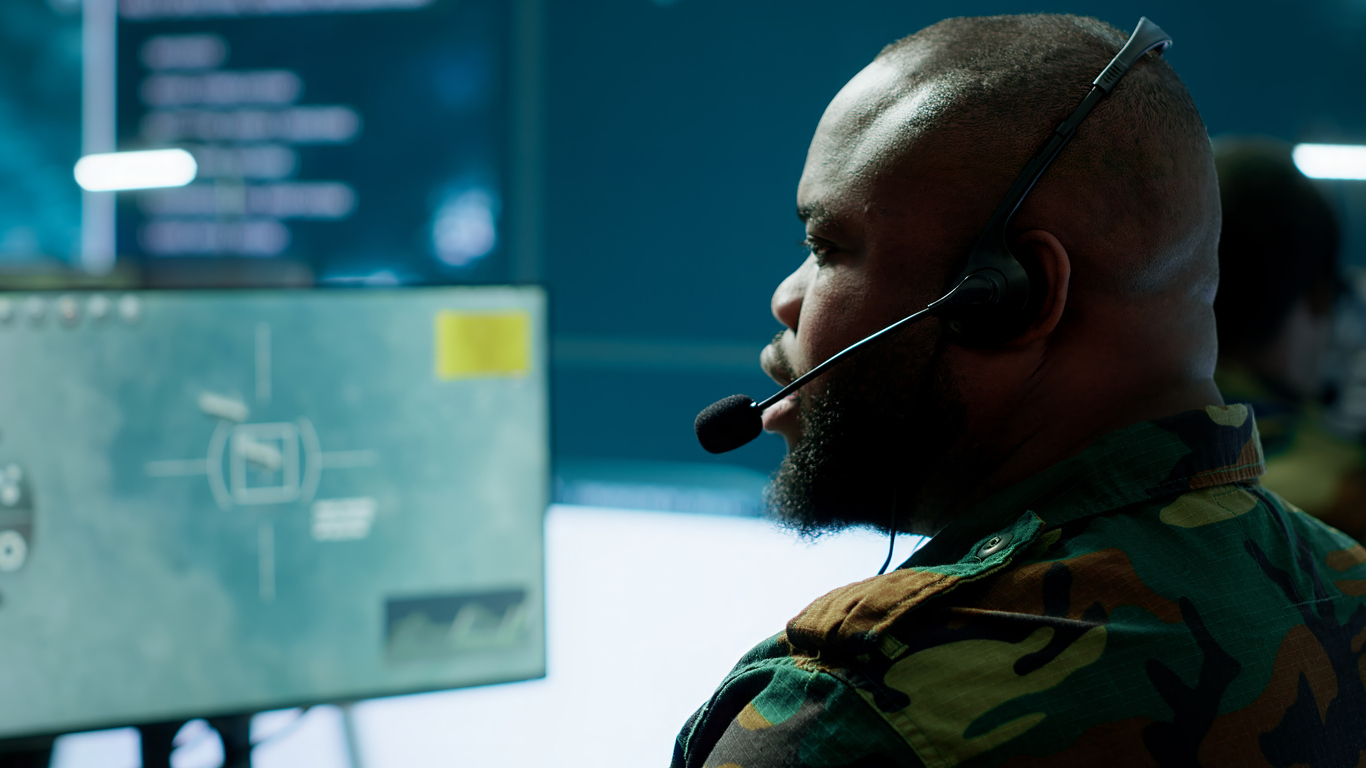What Is Intelligence Collection, and Why Does It Matter?
Written by:
East Carolina University®
• Oct 17, 2024

What Is Intelligence Collection, and Why Does It Matter?
Intelligence collection is essential for the military, national security agencies, law enforcement, and many other organizations. Without accurate intelligence, emergency management agencies can’t inform the public about threats, the military can’t adapt its tactics to deter threats, policymakers can’t effectively allocate resources, and police departments can’t solve crimes.
Understanding the various types of intelligence and the intelligence cycle is important for prospective professionals in the field. They can prepare by obtaining an interdisciplinary security studies education and learning about the intricacies of the discipline.
What Is Intelligence Collection?
Intelligence collection is the process of gathering information on potential security threats, criminal activities, emergencies, and matters of national security. It can also include conducting research or collecting information on a wide variety of topics. This intelligence can include reports from eyewitnesses, intercepted phone calls, satellite images, or public information.
After collecting raw intelligence, members of the intelligence community process and analyze the information to create actionable intelligence for stakeholders. To make decisions about counterterrorism, criminal investigations, and military strategies, decision-makers need current, accurate intelligence.
Types of Intelligence
Intelligence comes in many formats, from information communicated by informants to intercepted communications. While 21st century intelligence collection relies heavily on technology, it also requires an understanding of human intelligence and open-source intelligence. For example, public information is an important type of intelligence that can confirm information collected from other sources.
The following are the six types of intelligence collection:
- Signals Intelligence: Intelligence collected from signal intercepts, including communications intelligence and electronic intelligence, is known as SIGINT.
- Imagery Intelligence: The collection of images, including photographs, radar information, or other optics, is known as IMINT.
- Measurement and Signature Intelligence: MASINT includes scientific and technical information that locates and identifies targets.
- Human Intelligence: One of the best-known and oldest forms of intelligence, HUMINT refers to intelligence gathered from people.
- Open-Source Intelligence: OSINT includes publicly available information found in newspapers, media, the internet, and other sources open to everyone.
- Geospatial Intelligence: Analyzing geospatial information through satellites and other sources produces GEOINT.
Intelligence Collection and the Intelligence Cycle
While collecting intelligence is critical for national security and law enforcement organizations, gathering information is just one step in the intelligence cycle.
The intelligence cycle is a six-step process:
- Planning
- Intelligence collection
- Processing
- Analysis
- Dissemination
- Evaluation
Intelligence collection is critical because subsequent steps rely on accurate information. Before collecting intelligence, policymakers must determine intelligence priorities and implement collection strategies. After this planning step, intelligence specialists collect information using human sources, surveillance, and searches.
The intelligence collection step produces raw intelligence, which requires processing before it can be analyzed and disseminated to decision-makers. Throughout the intelligence cycle, policymakers, intelligence specialists, and organizations evaluate their processes and products to ensure the accuracy of information.
Applications of Intelligence
Gathering reliable information allows policymakers to make informed decisions. Intelligence collection also protects national security and mitigates threats. Here are some of the many ways organizations use intelligence.
Threat Assessment
Intelligence can indicate potential threats, allowing national security and law enforcement organizations to prevent harm before it occurs. While much threat assessment intelligence remains classified, the Office of the Director of National Intelligence (ODNI) releases an annual report that provides an assessment of national security threats. These threats include terrorism, cyberattacks, weapons of mass destruction, and environmental threats.
Criminal Intelligence
Law enforcement and criminal justice organizations rely on intelligence to battle organized crime and complete criminal investigations. Information gathered from informants, intercepted electronic communication, and other intelligence can prove vital during an investigation. Accurate and timely information can help police apprehend suspects, protect targets, and reduce crime.
Counterintelligence
Data theft, foreign espionage, and financial crimes are all significant challenges for the intelligence community. Counterintelligence protects sensitive information and assets by identifying and blocking attempts to access information. Gathering tactical intelligence on rivals and their intelligence operations plays an important role in counterintelligence.
Resource Allocation
Policymakers have limited resources, and intelligence collection provides important information on where to allocate those resources. At the local level, law enforcement uses intelligence collection to decide where to station patrol officers and units. Internationally, intelligence identifies emerging threats that require response strategies.
Disseminating Information
While several forms of intelligence are highly classified, disseminating information to the public is a key goal of other areas of intelligence collection. For example, journalists and the media collect information to inform the public, while emergency management organizations warn the public about public health and environmental risks.
Intelligence Collection Career Paths
Within the broad field of intelligence collection, professionals work in several specializations. Career paths in intelligence collection include the following:
- Military Intelligence Collection: The military relies on accurate, up-to-date information to make critical tactical decisions. As a result, each military branch has an intelligence collection arm, including the Army Intelligence and Security Command, Marine Corps Intelligence, and the Office of Naval Intelligence. These organizations specialize in collecting military intelligence.
- Law Enforcement: At the local, state, and national levels, law enforcement agencies employ specialists in intelligence collection. Criminal investigators, detectives, and special agents collect and analyze intelligence as part of their jobs. Private organizations in the law enforcement and security field are another common career path in this area.
- Intelligence Agencies: National and international agencies such as the Central Intelligence Agency (CIA) and the FBI rely on intelligence collection to investigate crimes and protect national security.
- Emergency Management: In the wake of natural disasters and other emergencies, collecting accurate intelligence can save lives. Emergency management intelligence collects information about potential threats and distributes information to the public to help respond to incidents.
What are some job titles in intelligence collection? Security analyst, intelligence specialist, and criminal investigator are common roles. Professionals also hold job titles such as security operations specialist, geopolitical intelligence analyst , and intelligence officer.
Earn a Security Studies Degree, and Start Your Career in Intelligence
Working in intelligence collection requires specialized skills. Prospective intelligence specialists benefit from a background in homeland security, cybersecurity, criminal justice, and related fields. The Bachelor of Science in Security Studies program at East Carolina University® can prepare you for careers in this high-demand field.
With courses such as The US Intelligence Community, Geographic Information Systems, and International Organizations the program prepares graduates for careers in intelligence, border and homeland security, and global security. Contact ECU to learn more about the program.
Recommended Readings
Security Risk Analyst Job Description and Responsibilities
5 Law Enforcement Careers for Security Studies Graduates
Sources:
International Association of Chiefs of Police, Criminal Intelligence
Maltego, Understanding the Different Types of Intelligence Collection Disciplines
Office of the Director of National Intelligence, How the IC Works
Office of the Director of National Intelligence, Intelligence Collection
Office of the Director of National Intelligence, What Is Intelligence?


